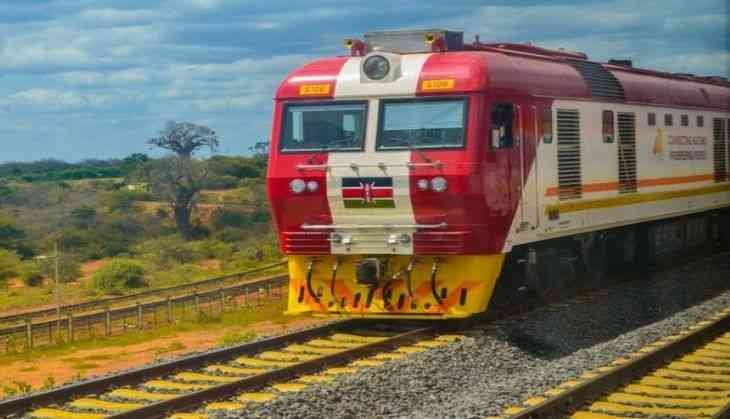Kenyan court declares USD 3.2 billion railway contract with China illegal

A Kenyan appellate court has ruled that the USD 3.2 billion railway contract between Kenya and the China Road and Bridge Corporation (CRBC) is illegal.
The Court of Appeal, which handles cases arising from the High Court's decisions in Kenya, observed that state-run Kenya Railways had failed to comply with and violated the country's law "in the procurement" of the Standard Gauge Railway (SGR), a multibillion-dollar Chinese-funded project under the Belt and Road Initiative (BRI), South China Morning Post (SCMP) reported.
Kenyan activist Okiya Omtatah and the Law Society of Kenya, an association of practising advocates, filed the suit in 2014 in a bid to halt the construction of SGR. They said the railway was a public project that should have been subject to a fair, competitive and transparent procurement process.
The plaintiffs said that the agreement was single-sourced without being put up for tender, despite the burden of loan repayments on Kenyan taxpayers.
The High Court had dismissed the case and ordered that the documents used by the plaintiffs to support their case, including the agreement and other negotiation papers, which the government described as classified, was illegally obtained and were to be expunged from court records, according to SCMP.
Upset with the High Court's decision, the plaintiffs made a fresh appeal at the appellate court.
Interestingly, the Court of Appeal's decision in favour of the plaintiffs comes even after a large section of the project has been completed and is operational since 2017. While the next course of action is unclear, the Kenyan government or CRBC could challenge the ruling of the appeal court or seek its interpretation in the Supreme Court.
Both CRBC and Kenya Railways defended the agreement, saying that the Kenyan government had negotiated a financing deal with Exim Bank of China for two loans, each amounting to USD 1.6 billion, to support the SGR project.
In 2014, the CRBC was awarded the contract to build the railway line from Mombasa port to Nairobi. Its parent firm, the China Communications Construction Company, later stepped in to construct an extension from Nairobi to Naivasha, a town in the Central Rift Valley, for another USD 1.5 billion, SCMP reported.
Both projects have been completed and passenger and cargo trains are operating. In 2017, the Africa Star Railway Operation Company, a subsidiary of CRBC, was awarded the contract to manage operations of both passenger and cargo trains on the SGR.
Kenya had planned to extend the rail line to Malaba, situated on the country's western border with Uganda. However, Exim Bank of China, which financed the first two phases, asked the Kenyan government to redo a feasibility study for the Malaba extension for commercial viability before funds were released.
With Kenya facing the heat to pay its debt in the wake of Covid-19 pandemic that has put the African country's economy in peril, the government has been forcing importers to use the train. However, truckers and importers have resisted, asserting that it is more expensive to use railways instead of trucks.
The SGR had last year earned a revenue of USD 136 million from cargo and passenger services.
Earlier this month, the Kenyan Parliament said that Kenya Railways had not paid USD 380 million in management fees to Africa Star Railway. The Chinese Embassy in Nairobi confirmed that Africa Star Railway had not been paid part of the fees but "appreciated the efforts that the Kenya government has made to clear the pending payments".
(ANI)
Also Read: Indian businessman, his wife brutally murdered by Pakistani man in Dubai

